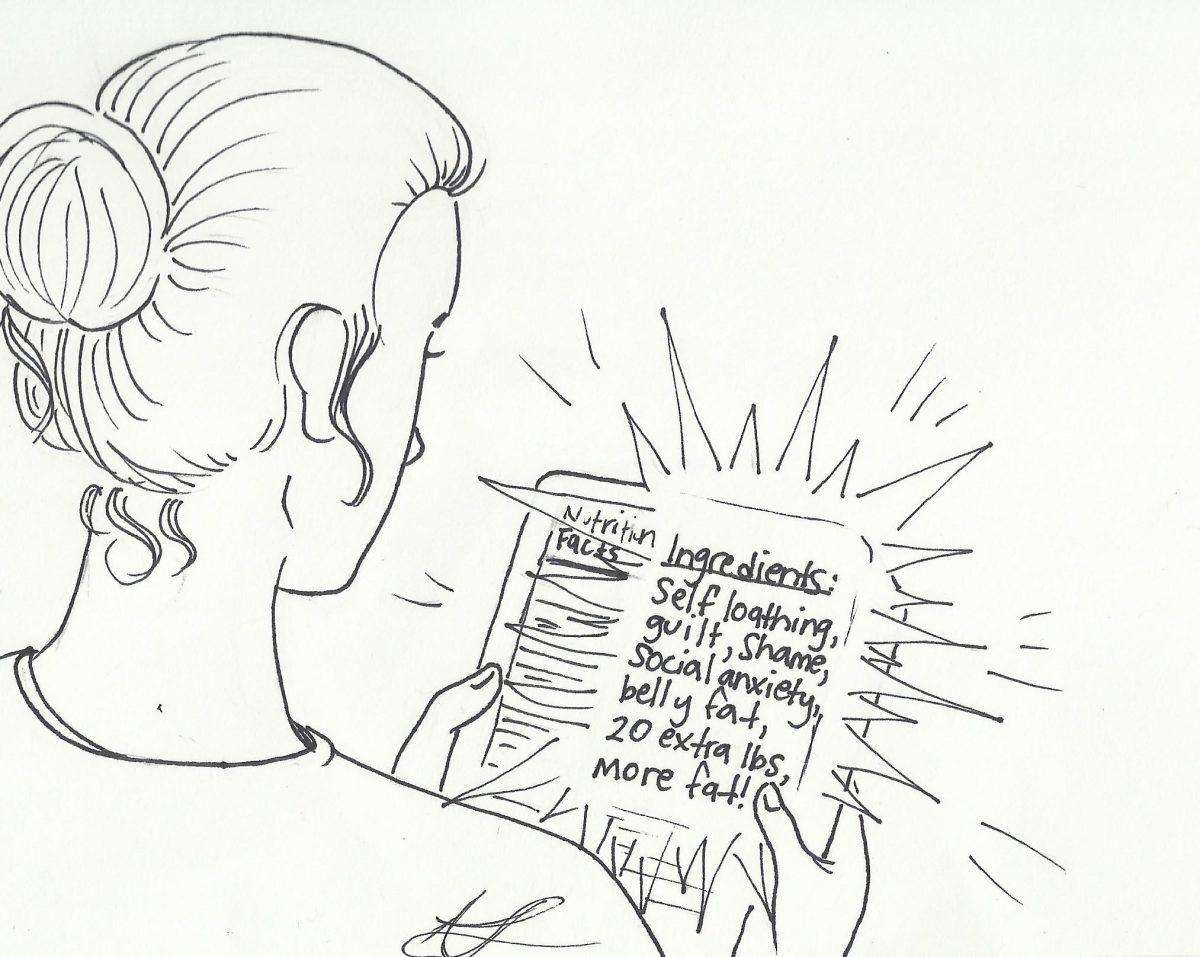We’re 23 days into the new year, and for some of us, our new diets.
Granted, many of you may have already crumpled up your list of New Year’s resolutions and headed for Dairy Queen, putting off to next year what you don’t want to do right now.
For those of you who are still trudging through the produce aisles and coughing to cover up stomach grumbles, I challenge you to look at the root cause of those grumbles and the culture that condones them.
Diet culture affects both men and women, albeit differently. While women are encouraged to slim down, men are striving to bulk up. And there are a few problems with this industry no one seems to be discussing.
The language used in the diet industry is controlling and sets us up for failure.
The word “diet” itself refers to the kinds of food a species habitually eats. It was never supposed to mean a restricted meal plan used to lose weight.
We eat because our bodies need nutrients to survive. Yes, for most of us eating is no longer about survival, but that does not take away the fact that our bodies need nutrients.
Diets should not be something you can cheat on, and applying a value system to food only causes you to feel shame for not choosing the guilt-free Turtle Mochasippi from CC’s.
Guilt is not an ingredient in any food.
But the value systems, the guilt-free drinks and the jokes about cheating on your diet are excellent ways for a company to make money.
The diet industry is exactly that — an industry trying to make money.
Celebrities are paid to tell us we should buy a product because they used it, and look how great they look now.
That product is used to body shame us, a plan to achieve “the new you” in an unrealistic timeframe. But we buy into it, most of the time.
Weight loss is not a measure of health, regardless of what Weight Watchers or “The Biggest Loser” tells you. Losing weight should not be the ultimate goal — the goal should be to feel healthier.
The diet industry does not make money off you feeling healthier, though. It makes money when you feel poorly about yourself and want to be thinner.
This industry capitalizes on the fear that our bodies are not the right size or shape, and it tells us we are in desperate need of self-improvement.
For those burdened with masculinity, you’re pressured to drink this and take that supplement to become ripped, or built, or whatever terminology they’re using to say you do not have enough muscles.
On the other hand, women are targeted and accused of taking up too much space.
In “Women and Gender: A Feminist Psychology,” Mary Crawford and Rhoda Unger touch on the history of adolescent dieting, noting that the focus on the body is a recent development.
Girls in history used to describe self-improvement as studying, learning manners or improving relationships. But in the last 20 years, self-improvement has narrowed in on the physical body.
It’s worth noting that this coincided with media describing beauty as being thin. And of course, being beautiful is the goal of every young girl.
In the book “Perfect Girls, Starving Daughters: The Frightening New Normalcy of Hating Your Body,” Courtney Martin stresses how much energy is being wasted on researching low-fat food and spin classes.
“We thought we would save the rainforest and find a cure for AIDS. Instead, we are doing research on the most accurate scales and the latest diet trends,” Martin writes.
As long as we are obsessed with our weight and the circumference of our thighs, we are the biggest losers. And the diet industry is the only one winning.
Opinion: Weight loss resolutions are part of diet culture, harmful to health
By Jana King
January 22, 2014
More to Discover









